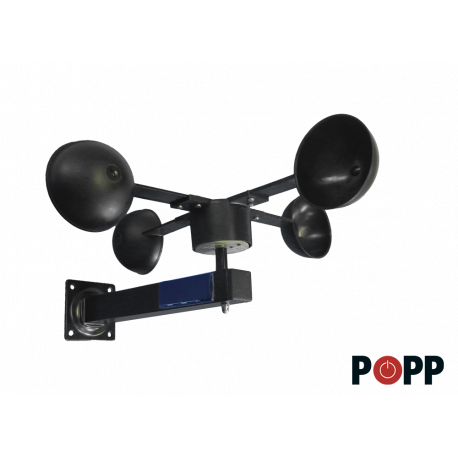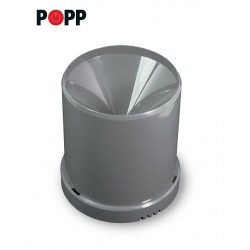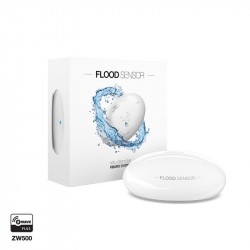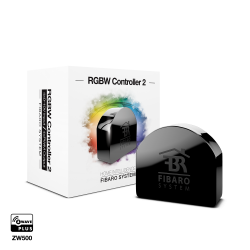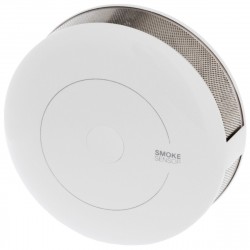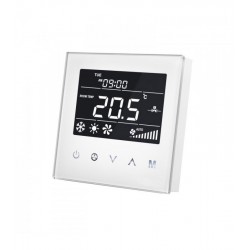No products
Prices are tax included
Product successfully added to your shopping cart
There are 0 items in your cart. There is 1 item in your cart.
Popp Z-Weather - Multifunctional outdoor sensor
POPE005206
New
Z-Wave Meteorological Station and multifunctional outdoor sensor with Z-Wave Plus technology and autonomous solar power for wind speed detection (Z-Wave PLUS technology anemometer), air temperature, relative humidity, light intensity, air pressure and dew point.
In Stock
- Remove this product from my favorite's list.
- Add this product to my list of favorites.
Technical characteristics
| Home Automation Technology | Z-Wave Plus |
More info
The POP-Z-Weather is the first autonomous solar sensor of Z-Wave technology (Gen5-Z-Wave PLUS) that acts as a Z-Wave weather station.
This multifunctional sensor obtains the energy for its operation from the sun. Thanks to the energy management and the internal capacitor, the wind speed sensor sends the measurements to the Z-Wave home automation control unit even at night. That is, it is also a Z-Wave anemometer, in addition to measuring other parameters and variables and communicating them through Z-Wave.
The integrated energy manager calculates automatically and establishes activity intervals of between 5 minutes (on sunny days) and 1 or 2 hours on cloudy days or at the beginning of the day.
Additionally, energy management protects against total discharges and allows a continuous operation for the reporting of sudden bursts of air, storm or nightfall in case of emergency.
The multifunctional outdoor sensor allows us to capture and send different values to the home automation controller via Z-Wave, such as:
- Air temperature (external thermometer z-wave)
- Relative Humidity (z-wave hygrometer)
- Intensity of light
- Air speed (z-wave anemometer)
- Air pressure
- Dew point
As additional functionality, the Z-Weather performs a sampling of the energy delivered by the solar energy cell available to it. The measurement is normalized as if it were a solar cell of 1 square meter and reported with 16% efficiency in kWh. To calculate the wind speed (z-wave anemometer) every 8 turns a pulse is reported.
Thanks to Popp's Z-Weather, interesting domotic scenes can be realized that close blinds, roof windows, collect awnings, irrigation control, etc. You can also perform this type of actions through the association of devices. It is also very interesting sunlight or ambient light to operate devices or domotic scenes, such as turning on the exterior lights at dusk, or turn them off at dawn.
Important note: Before setting up and using Z-Weather, the unit needs to be fully charged by direct exposure to the sun for about 4-6 hours. Without direct sunlight, the full charge can last up to 12 hours.
This Z-Wave Plus device is compatible with the domotic controllers Popp, Fibaro (since June 2016), Jeedom, eedomus and the GPIO RaZberry card for Raspberry PI.
Download
Extended Z-Wave info
Manual download HERE.
The LED blinks longer than when pressing the button once.
Z-Weather performs a factory reset and all configuration parameters are reset to their default values. Use this procedure only when the network primary controller is missing or otherwise inoperable.





